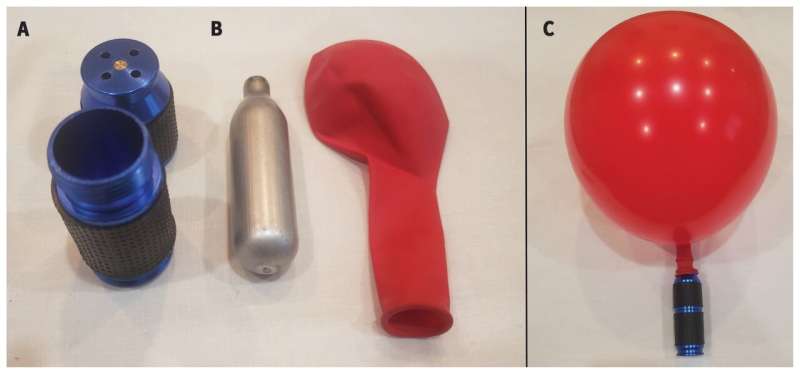This article has been reviewed according to Science X's editorial process and policies. Editors have highlighted the following attributes while ensuring the content's credibility:
fact-checked
peer-reviewed publication
trusted source
proofread
Study aims to help clinicians recognize signs of nitrous oxide toxicity

Nitrous oxide is a popular recreational drug, especially among young people, that can cause serious and sometimes permanent neurological defects. A new review in CMAJ (Canadian Medical Association Journal) aims to help clinicians recognize signs of nitrous oxide toxicity.
Also known as "laughing gas," nitrous oxide is an anesthetic sometimes used in pediatric and dental procedures. Inexpensive and easily obtainable online, it is increasingly used for a quick high. In the 2021 Global Drug Survey, 10% of all respondents, and 15% of Canadian respondents, indicated having used the drug in the previous year.
"The low cost of and ease of access to nitrous oxide make it a popular recreational drug, especially among younger people," writes Dr. Cyrille De Halleux, a specialist in internal medicine, critical care and resident at The Hospital for Sick Children (SickKids) and chief fellow in the Division of Clinical Pharmacology and Toxicology at the University of Toronto, Toronto, Ontario.
Chronic use of nitrous oxide can cause functional vitamin B12 deficiency, which can result in long-term health effects, especially neurological consequences. The three most common presentations of toxicity are damage to the spinal cord (myelopathy), nerve damage affecting strength and sensation (neuropathy) and behavioral abnormalities (encephalopathy). Treatment includes stopping use of the substance, vitamin B12 supplementation and methionine.
"Clinicians should enquire about nitrous oxide use in patients with unexplained findings suggestive of vitamin B12 deficiency or other compatible neurologic symptoms," the authors conclude.
More information: Cyrille De Halleux et al, Diagnosis and management of toxicity associated with the recreational use of nitrous oxide, Canadian Medical Association Journal (2023). DOI: 10.1503/cmaj.230196




















